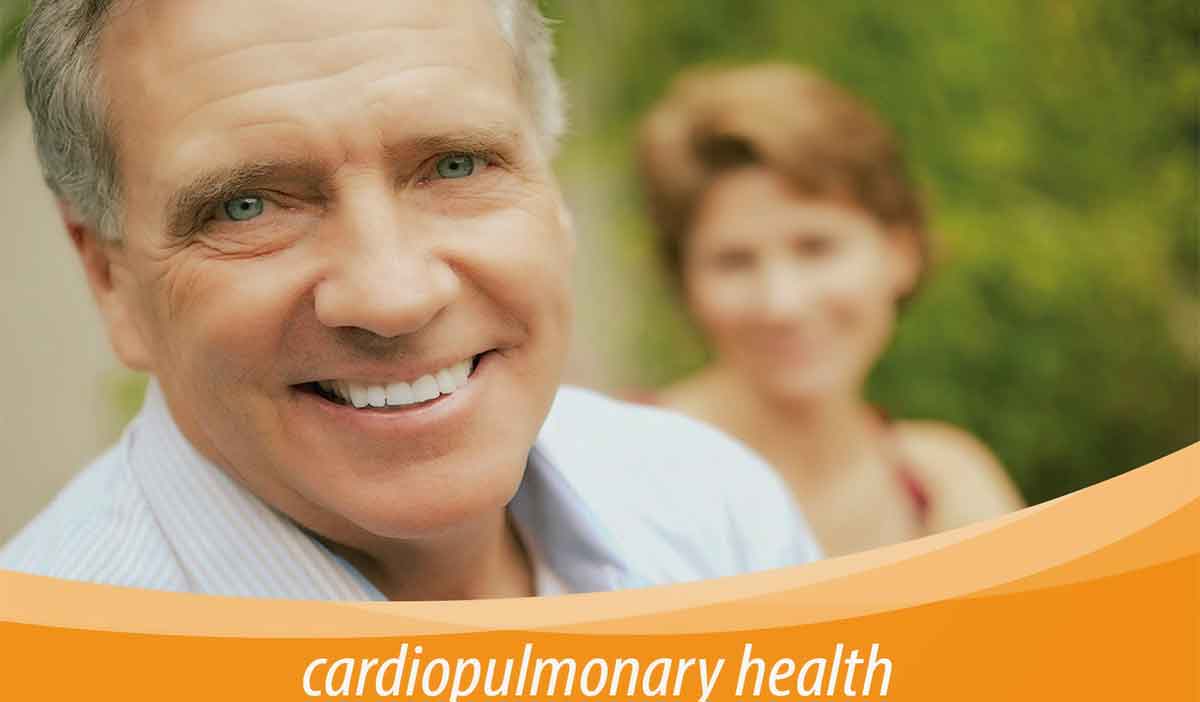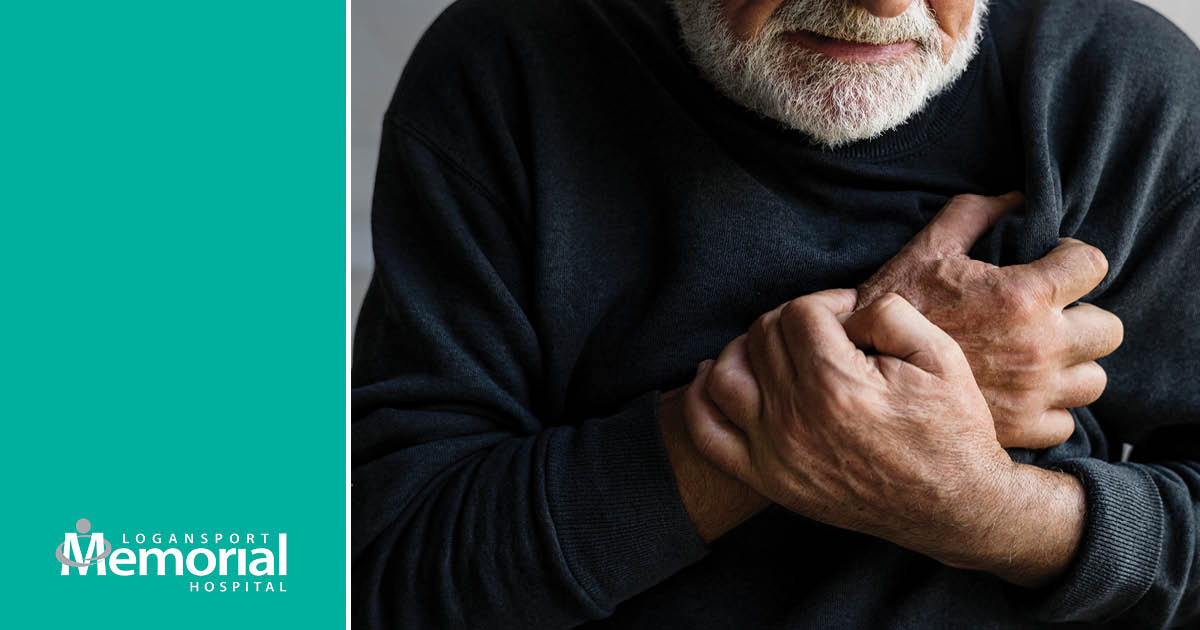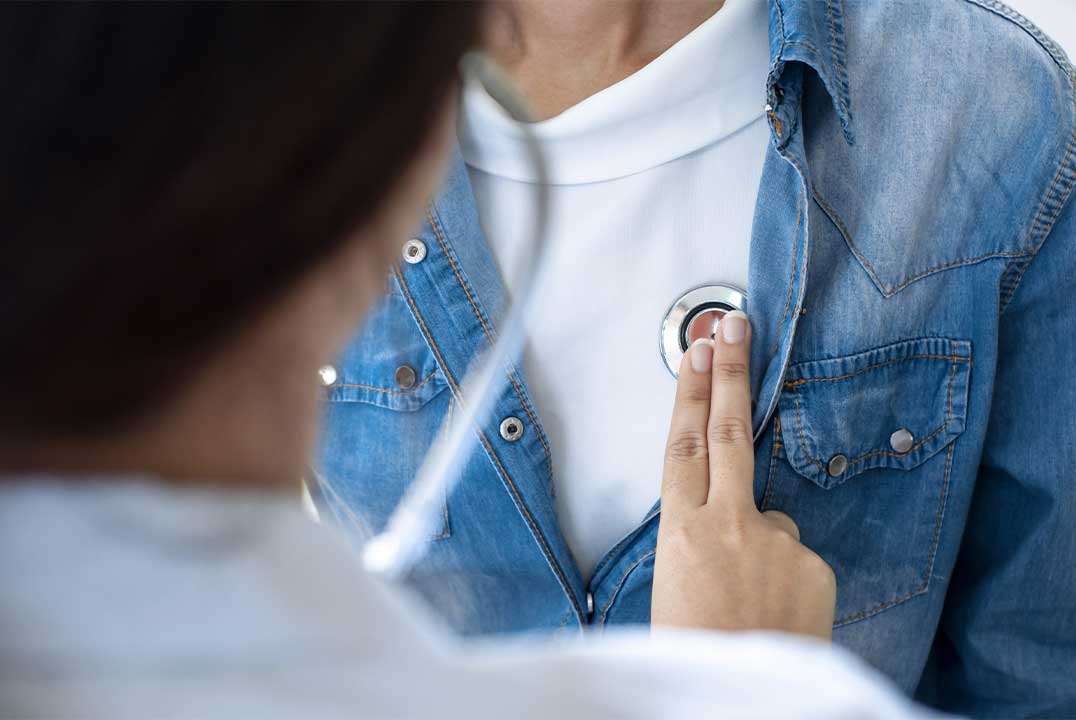Did you know shortness of breath is a sign of heart failure? Did you know fluid in the lungs can be caused by heart issues?

In a healthy body, the heart and the lung work together in harmony with each heartbeat and breath you take. When that harmony is broken, it can be a sign of serious health issues. Cardiopulmonary health – which means having to do with both your heart and lungs – should always be taken seriously. Let’s learn more about how the heart and lungs work together, symptoms of cardiopulmonary problems and steps you can take to improve your cardiopulmonary health.
How do the heart and lungs work together
Your heart and lungs aren’t just located near each other – they are partners working to make sure your entire body gets the oxygen it needs. The right side of your heart receives blood from the body and pumps it to the lungs. The lungs fill the blood with oxygen and then send it back to the heart. The left side of the heart receives this oxygen-rich blood from the lungs and pumps it out to the body.
Want to learn more about how oxygen gets from your lungs into your blood and throughout your body? Read this article from the Joan Lamphier Memorial Research Foundation for Pulmonary Hypertension.
Symptoms of cardiopulmonary problems
A weak heart or lungs mean that your major organs and muscles aren’t getting the oxygen you need. Common symptoms of cardiopulmonary health issues include:
- chest pain
- shortness of breath – most often during activity but even when lying flat in bed
- irregular heartbeat

- swollen lower legs or ankles
- dizziness
- fatigue and weakness
A weak heart causes fluid to back up in the lungs which makes the lungs less efficient. Lung congestion can also cause problems in delivering oxygen-poor blood to your heart. Basically, if either partner isn’t holding up their end of the relationship – you will have health problems.
Keeping your heart and lungs healthy
Seemingly small changes can make a big difference in the health of your heart and lungs.
Since your heart and lungs are so important to your overall health, you’ll reap many benefits from a healthier lifestyle. Here are a handful of things you can start doing today that will help your heart tomorrow:
1. Eat a healthy diet: a diet filled with veggies, fruit, whole grains, fish, and nuts and beans is a good step towards better health. Pay particular attention to foods that are high in omega-3 fatty acids – these decrease inflammation in the arteries surrounding your heart which helps your heart work better. And don’t forget to watch your salt, food high in salt increases your blood pressure which is hard on your heart and lungs.
2. Exercise regularly: Walking, biking and swimming are all examples of aerobic activity that improves the capacity of your entire cardiopulmonary system. Strength training with weights in particular is good for your heart as it reduces your body fat and increases muscle mass which helps you get more from aerobic exercise. New to exercising? Consult with your doctor before starting any exercise program.
3. Reduce stress: the hormones that rise with stress are bad for your heart. Daily meditation; taking slow, deep breaths; seeking healthy friendships and other stress relieving techniques aren’t just better for your emotional health – they help your heart too!
4. Stop smoking: Your heart and lungs will reap immediate benefits when you stop smoking. Read our recent article with three steps to quit smoking.
5. Get enough sleep: Research indicates that adults need 7-9 hours of sleep to stay in good health. While each individual is different, one thing remains the same for all of us – sleep is an important part of overall health. Turn off electronics before bed, avoid caffeine after noon and stick to a sleep schedule to help your body get a good night’s sleep.
Let us help take care of your heart and lungs
Our services include diagnostics, cardiac rehab, respiratory therapy, sleep therapy and more. Take a few minutes to use our calculator to determine your risk of developing cardiac disease in the next ten years. If needed, make an appointment or call our heart care center with your questions. Learn more about cardiopulmonary health at Logansport Memorial.




